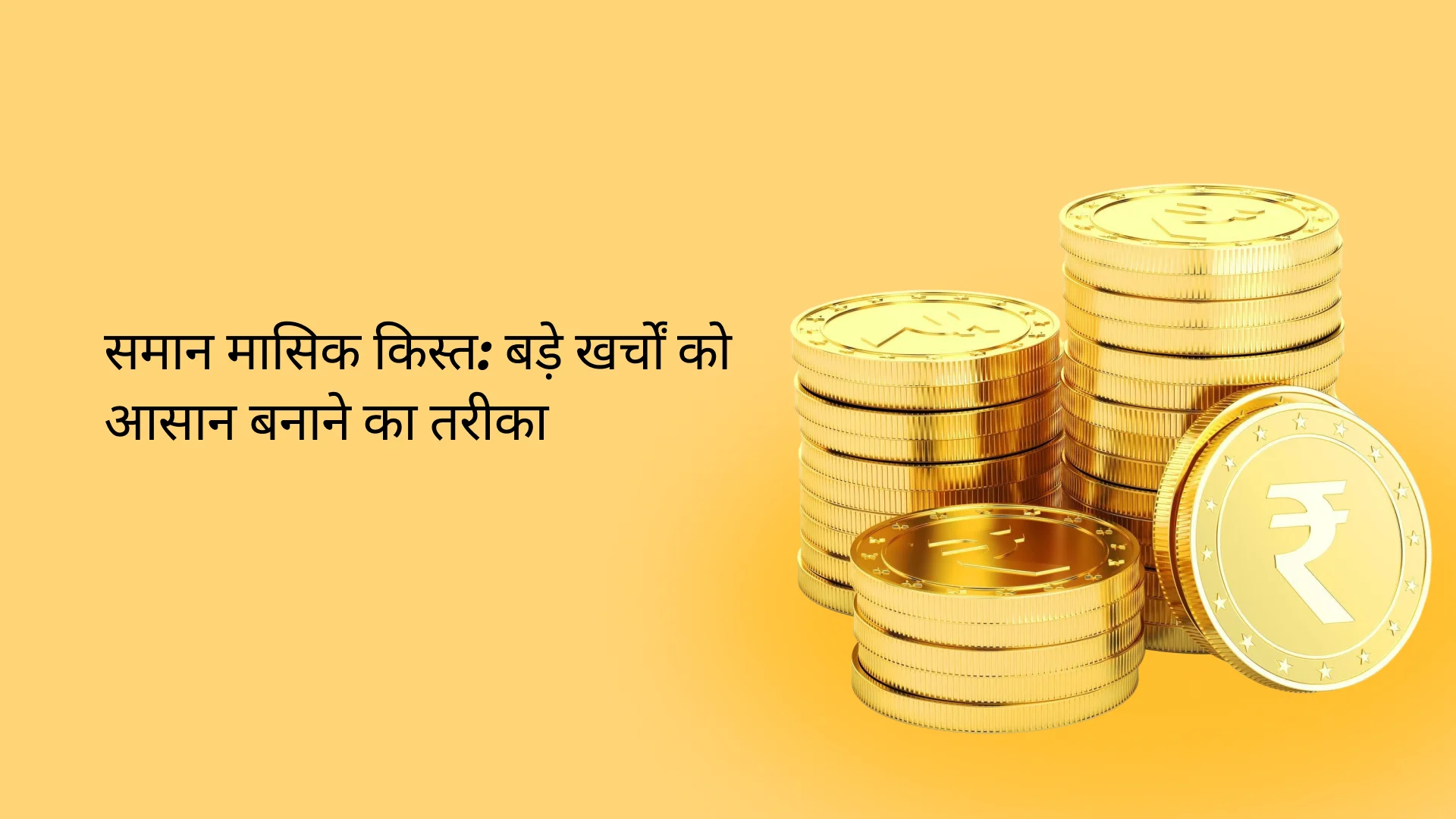Personal Loans vs. Personal Lines of Credit: Key Differences Explained

When it comes to loans, there are a lot of options available in the market to choose from. Personal loans and personal line of credit are the most common types of loans that individuals prefer. Both are a type of unsecured loan, meaning they don’t require any collateral.
This blog explores the difference between personal loans and personal lines of credit.
Table of Contents
ToggleWhat is a Personal Loan?
A personal loan is an unsecured loan with a fixed term, which differs from lender to lender. The borrower receives a fixed loan amount and agrees to repay it in fixed instalments over an agreed-upon tenure. A personal loan is ideal when you want to make a significant one-time purchase like a wedding, buying an expensive gadget, or home upgrade. A personal loan is a great option in an emergency or to effectively manage your monthly budget.
Advantages of Personal Loans
Personal loans offer competitive interest rates with an easy application process. They have the following advantages like:
- Fast Approval: Personal loans have quick application and fast approval, making it easy to get access to quick funds. Additionally, if you have a good credit score and credit history, it leads to faster loan approval.
- Paperless Application: The application process is paperless, requiring only basic details like name, mobile number and PAN details. This makes it a hassle-free process compared to traditional banks that often require a lot of documents.
- No Collateral Required: Personal loans are a type of unsecured loans. Thus, you don’t have to pledge any assets.
- Versatility: Personal loans can be utilized for various purposes like vacations, weddings or travel expenses.
- Flexible Tenure: It is easier to manage loan repayment as lenders offer tenures ranging from 6 months to 72 months.
Also Read: How to Claim Zero Processing Fees on Personal Loan Application?
Disadvantages of Personal Loans
The benefits of personal loans far outweigh the risks. Here are a few cons that personal loans have that you need to be aware of:
- Fees & Charges: Some lenders may charge pre-payment fees and late payment fees depending upon their policies. If you are not aware of these charges, you may end up paying a lot more, leading to a significant impact on your finances.
- Credit Score Impact: If you miss EMI payments or have a streak of late payments, then it has a direct impact on your credit score.
- Interest Rates: Personal loans have a high interest rate compared to other types of loans. If you have a low credit score, the lender may offer a loan at a higher interest rate to cover costs.
What is a Personal Line of Credit?
Personal line of credit is a type of revolving credit. Once you get approved for it, you get a credit limit, and you can utilize it as and when you need it. You only pay interest on the amount that you have utilized and once you repay the amount, the credit again becomes available to you.
Advantages of Personal Lines of Credit
Personal lines of credit is a type of revolving credit that allows you to utilize the credit limit as much as you want. Once you repay the credit, it replenishes and is ready for use again.
- Accessibility: You have access to money and can withdraw it anytime you want to.
- Cost Efficient: You only pay interest on the amount that you utilized. You do not have to pay for the entire approved credit limit, saving costs significantly.
- More Credit Limit: Depending on your creditworthiness and financial requirements, the lender may offer you a higher credit limit. This gives you more funds to manage your finances.
- Offers Revolving Credit: You can access the credit as many times as you can, as long as you make timely repayment.
- No Pre-payment Penalties: Many lenders don’t charge any pre-payment penalties on personal lines of credit. This makes it convenient to repay the loan early.
Also Read: Personal Loan Verification Process – How Does It Work?
Disadvantages of Personal Lines of Credit
While a personal line of credit is a good option to get quick access to funds, you also need to weigh in on the cons attached to it.
- Rigid Eligibility Requirements: To get approval for a personal line of credit, you need a high credit score and a low debt-to-income ratio.
- Fluctuating Interest Rates: The interest rates are variable. This makes it inconvenient to set a budget for monthly repayments.
- Additional Fees: A few lenders may charge added fees like annual fees, transaction fees, service fee
- Limited Applicability: A personal line of credit is not suitable for every type of expense. Only expenses like home renovation or any expenses that have an uncertain amount is ideal to take a personal line of credit.
Key Differences Between Personal Loans and Lines of Credit
Personal loans, lines of credit both allow you to get access to instant funds. However, they have key differences and are compared in the below table:
| Factors | Personal Loan | Line of Credit |
| Structure | The one-time loan amount which is given to the borrower upfront. | It is a type of revolving credit. One can access credit as needed |
| Repayment | Repayment is done in fixed monthly instalments | Repayment is done only on the amount utilized. |
| Interest | Interest rate is either fixed or variable on a personal loan | Interest rate is mostly variable on the line of credit |
| Tenure | The loan tenure is fixed. It is typically between 1 to 7 years | The tenure is ongoing and resets after repayment. |
| Borrowing Flexibility | One can borrow only once. For more amount, one needs to apply for a new loan. | One can keep borrowing within the credit limit as long as they repay the amount. |
How to Choose Between a Personal Loan and a Line of Credit?
Between a personal loan and a line of credit, which option best fits you will depend on various factors and your purpose of borrowing. Thus, if you want to check which option is best for you, keep the below factors in mind:
When to consider a personal loan
- A personal loan is ideal when you have a clear idea about the purchase and pay it within a fixed structure.
- It is a good idea to take a personal loan for a medical expense, travel or make an expense purchase like a gadget, mobile phone or a luxury item.
- If you have a high credit score, you can negotiate a lower interest rate on your personal loan as well.
When to consider a Line of Credit
- A line of credit is preferred if you have ongoing expenses and are unclear on how much amount you may need.
- Opting for a line of credit is ideal for home renovations, wedding expenses or relocation.
- Line of credit allows you to utilize only the amount you need and the credit resets once the repayment is completed.
Conclusion
Personal loans and lines of credit are good options for getting instant funds. Line of credit is a good option to take care of ongoing expenses, but they do come with higher interest rates. They are ideal for ongoing or unexpected expenses. Personal loans, on the other hand, have higher fees upfront but the cost is spread out evenly in monthly instalments. They are ideal for a planned expensive purchase. Weigh both these options carefully and choose the option that best suits your financial situation.
Frequently Asked Questions
When Should You Go for a Personal Loan?
You should go for a personal loan when you have a medical emergency, wedding, vacation, home renovation, gadgets, and education purposes.
When Should You Go for a Personal Line of Credit?
A personal line of credit should be used when the expenses are uncertain and may fluctuate like wedding or home renovations. A personal line of credit allows you to borrow only the funds that you require and allows you to repay as per your convenience.
Is It Best to Get a Loan or a Line of Credit?
It depends on your financial requirements. You should opt for a loan when you have a large one-time purchase. Use a line of credit when you have an ongoing or irregular expense to take care of like home renovation, wedding or medical bills.
Is it better to get a personal loan or a line of credit?
The better option depends on your financial need. A personal loan is best for a one-time large purchase while a line of credit is best for any ongoing or irregular expenses one needs to pay for.
What is the credit line in a personal loan?
A credit line in a personal loan is a preset borrowing limit set by the lender. The borrower can utilize this amount as long as it is within this limit. Once the credit is repaid, they can access funds from the credit line.
Is it harder to get a loan or a line of credit?
It is harder to get a line of credit as it requires a high credit score (750 & higher) as compared to a loan that one can get with a credit score of 700.
What is a good personal line of credit rate?
For a borrower, a good personal line of credit rate falls within the range of 10% to 15% APR (Annual Percentage Rate), depending on the market conditions and the specific lender.
Who has the best line of credit?
A few banks/NBFCs that have a line of credit options are like ICICI, Axis, HDFC and IndusInd.
YOU MAY ALSO LIKE

Search by posts
Recent post
-
 समान मासिक किस्त: आपकी वित्तीय खर्चों को आसान बनाने वाला तरीका
समान मासिक किस्त: आपकी वित्तीय खर्चों को आसान बनाने वाला तरीका
-
 Apply for 50000 Rupees Loan Urgently: Get Disbursed in Few Minutes
Apply for 50000 Rupees Loan Urgently: Get Disbursed in Few Minutes
-
 How to get Instant Loan on Aadhaar Card without Salary Slip
How to get Instant Loan on Aadhaar Card without Salary Slip
-
 How to Apply for a Rs. 25,000 Loan on an Aadhaar Card?
How to Apply for a Rs. 25,000 Loan on an Aadhaar Card?
-
 How to Get ₹30,000 loan without income proof: Quick Ways
How to Get ₹30,000 loan without income proof: Quick Ways
Categories
- Blog (6)
- Credit History (36)
- Credit Line (7)
- Festive (4)
- Finance (15)
- Mutual Fund (19)
- Personal Loan (275)
- Tax (8)
- Zype (4)













